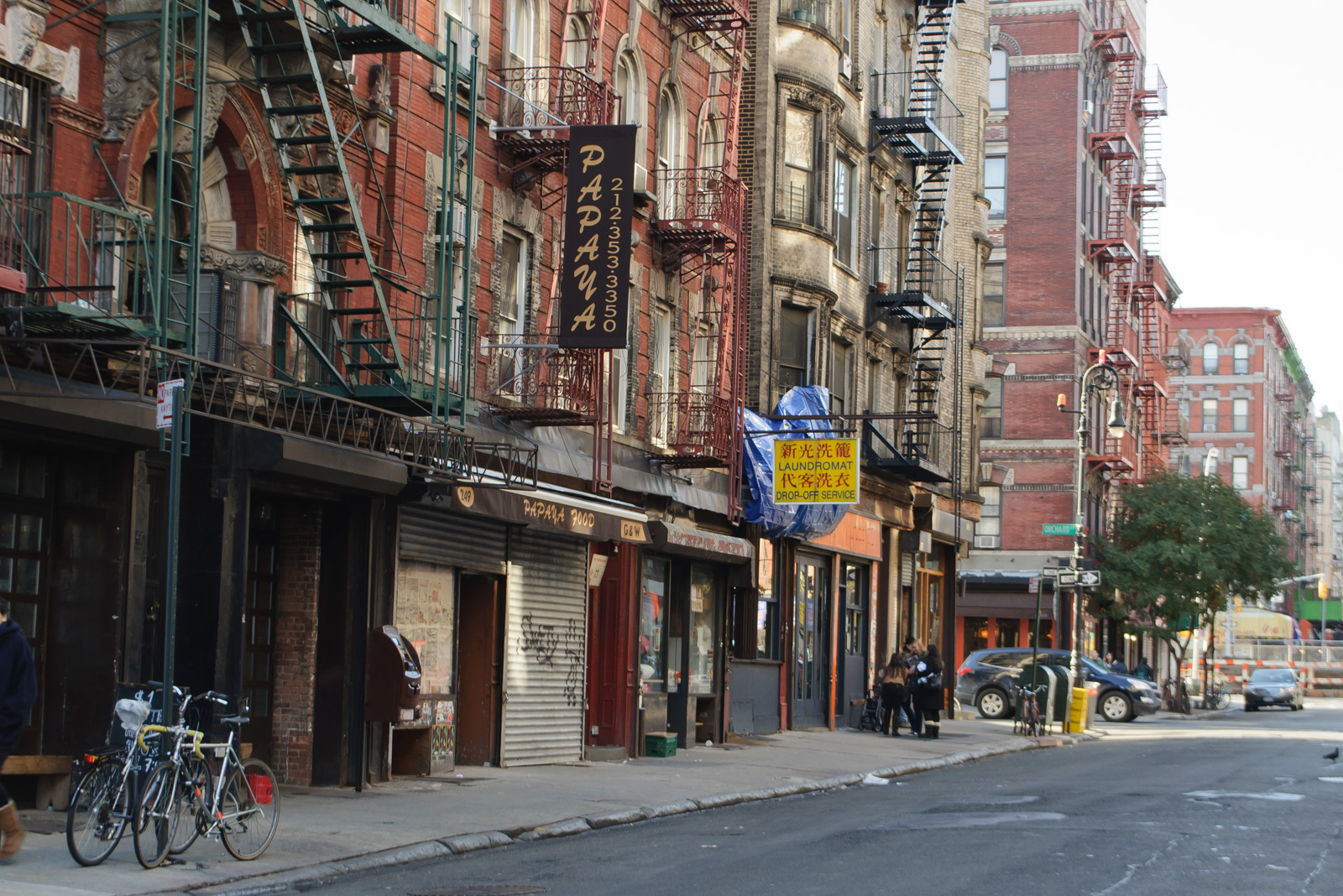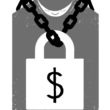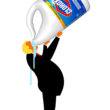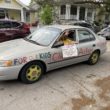The newspapers are full of obituaries for New York. In my neighborhood, one place has not closed even for a day: Russo’s, the Italian grocery that dates from the turn of the last century, that weathered the 1918 flu, the Depression, the wars, deindustrialization, and gentrifiers’ arson. It’s a tiny place, and the main worker started wearing a mask weeks ago; the manager still is unmasked, though the customers, grateful, are.
This is the last grocer in the hood from the old Italian days—hanging prosciutto, fresh pasta, fresh mozzarella, cheeses from the world, biscotti and olive oils and tonno, meats and specialty heros, olives and sun-dried tomatoes with garlic in oil, dried mushrooms, Italian coffee, curious Italian sodas, roasted stuffed artichokes, and the best bread around, including a particularly addictive prosciutto loaf.
I have not been paid for weeks, including for work done, and my savings dwindle as I wait in probably vain hope for pandemic unemployment insurance, but I shop there more than anywhere, unless I want milk and greens or fruit. Like the rickrack of buildings, visible for miles from roofs where people exercise; like polyglot, multicolored humanity, which still roams these streets; like the Empire State Building, visible from my windows, which lit up first like a revolving ambulance alert and now burns red, throbbing like a heartbeat, this is beloved New York. Death may come soon, or days of bread and water, but for now there is a lovely handmade ravioli. As the poet said, “We love life whenever we can.”
I stay away from lines and big stores as much as possible. I walk in the bike lanes, no longer as crowded with bullying riders. (Bike riders, emblems of virtue, look different once you’ve been thrown in the air and onto the asphalt by one who ignored the red light, and you.)
I stay away from Zoom as much as possible. There is no allure in poor-quality video just to see someone’s face. The phone is good; soul is in the voice.
New York has been one staggeringly beautiful day after the next. The rain comes and goes, but mostly it has been the most glorious April in memory (my birthday is on the first, and those of loved ones are scattered through the month, so I take special note of April). The flowers are in riot. The trees are fresh green.
The air benefits from the absence of cars.
Our sanity benefits from the absence of college bros and gangs of girlfriends screaming drunkenly on the street every weekend.
Bars and restaurants, which may indeed go down in the coming depression, have proliferated in this neighborhood for the past 30 years, at least. They are about the only businesses (along with bank branches and drugstore chains) that can afford the rents, and even some of them have been driven out as commercial rents went to $20,000 and $30,000 a month in some places, more in others. If some of them shut down permanently, that will be too bad for them but not the biggest loss—indeed, kind of a plus if extortionate rents go down with them, as over the years those have pushed out so many more necessary businesses.
If the staples of the hood go down, like the tiny Caribbean restaurants; the dive bars; the hardware stores; the independent pharmacy; the corner grocers; Russo’s; the organic shop with bulk dry foods at fair prices; Santos’ copy shop; the entrancing (as opposed to smelly or snooty) second-hand shops; Veselka; the Ukrainian Home; the last Polish diner; the last Polish butcher (even though he’s irritating); Veniero’s; the dry cleaner, still operating; Papaya hot dogs; Porto Rico coffee and tea, still operating; the fabric and notions shop; the last dairy restaurant; the last real diner on 14th Street; the nearest laundromats; the bagel shops; Big Arc chicken (a taxi drivers’ pit stop, with the best hummus and the only flame-grilled chicken around); the café on 10th Street with the best almond croissants; the greasy pizza on the corner of St. Mark’s; the Odessa diner on Avenue A; the hole-in-the-wall egg cream shop; Gem Spa (now the merest shadow of itself); the knish shop and Russ & Daughters on Houston; the unpretentious oculist; the wondrous vintage eyeglass shop; the Indian spice shop—that will be a cause for grief.
The newspapers seem to forget that our neighborhoods have been attacked for decades—and some, like the meatpacking district—obliterated almost overnight. They have just discovered that some people go without “basic necessities,” that the system is cruel and stupid; they don’t say that the virus may be new but the structures that make it so deadly have been killing for a very long time. They mourn the loss of certain uptown bars where hoi polloi mixed with bigfoot politicians and reporters; they seem oblivious that so many New Yorkers have seen the mass die-off of our butchers, our fishmongers, our shoemakers, our bodegas and vegetable stands, our ethnic shops, our coffee shops and bread bakers, our Jewish delis, our newsstands, our bohemia, our neighbors. They seem oblivious that people in public housing in the Lower East Side have long had to walk many blocks to find shops, laundromats, any amenities at all. They seem oblivious to hunger and sickness in the best of times, mostly as invisible as the sick and dying are today.
They do not mourn the loss of populations that for decades have been priced out. It is amazing anything remains of the Lower East Side and East Village that is not a hipster bar with overpriced drinks; overpriced burgers; and spoiled, loutish patrons who tear up our gardens in the summer, trash up our streets in all seasons, and shout stupidly through the night. Almost every affordable apartment that remains exists because tenants put up a fight. Almost every really wonderful small business remains because the proprietor owns the building or somehow grits it out. Public housing remains because of a fight, but it was being starved of funds and threatened by venal government and public-private partnerships long before anyone heard of the coronavirus. The mourners for “hot” New York, tourist New York, go-go New York forget the casualties in every neighborhood that was designated hot when the word was a term of parasitic desire.
I am curious what my landlord will do once the lockdown is over. He bought the building (in a parcel of three tenements on a corner lot) for $11 million last year. He drove out the nail shop downstairs. He drove out most of the market-rate tenants. He has abided the psycho store owner who has a history of harassing the tenants, turning off our power, our water, banging on our doors. The landlord has not bothered to restore our cooking gas (shut off since November 2018), but he did manage a gut renovation of some vacant apartments in our building shortly before the shutdown.
He is making the downstairs one-bedroom apartments just like mine into two-bedroom units. His blueprints designate space for a washing machine and a wine cooler as inducements for the $4,200 monthly rent we’ve heard he was anticipating. He caused those of us still here nothing but tsuris and coughing and light-headedness, our homes filled with dust and brutal racket, while maskless workers knocked down every wall in those apartments, sledgehammering every bit of old plaster, jackhammering the charming black-and-white tile floors in the halls. Lead? Asbestos? Our building went up in 1903. I complained to the Health Department for ourselves and the workers. Then the virus hit, the workers went home, and some of the violence of everyday life diminished, while taking a different, stranger form, the kind that gets headlines.
So . . . it’s a beautiful day.
For now, the renovators are gone and have been for weeks.
The air is clean.
We sleep at night.
We are not choking because of the landlord, at least.
We still have no gas, but our rents are cheap.
Our rents are cheap because long ago we fought for the chance to survive here.
Recklessly, I am buying a good bottle of gin and going out to find white lilacs today.
I expect the whirlwind, later and for a long time, but we love life while we can.
Coda: Grief strikes suddenly or drags its feet. I wrote this in late April. As May blew in, our independent pharmacist, Ali Yasin, died of the virus. First his lungs, then his kidneys, then his heart stopped. He was the kindest, wisest counselor many of us had. The sky was the color of steel today, and sleet rained down.
JoAnn Wypijewski, a journalist in New York, has been involved with a housing justice organization, Good Old Lower East Side, since 1981. Her book What We Don’t Talk About When We Talk About #MeToo: Essays on Sex, Authority & the Mess of Life is forthcoming from Verso.







0 Comments